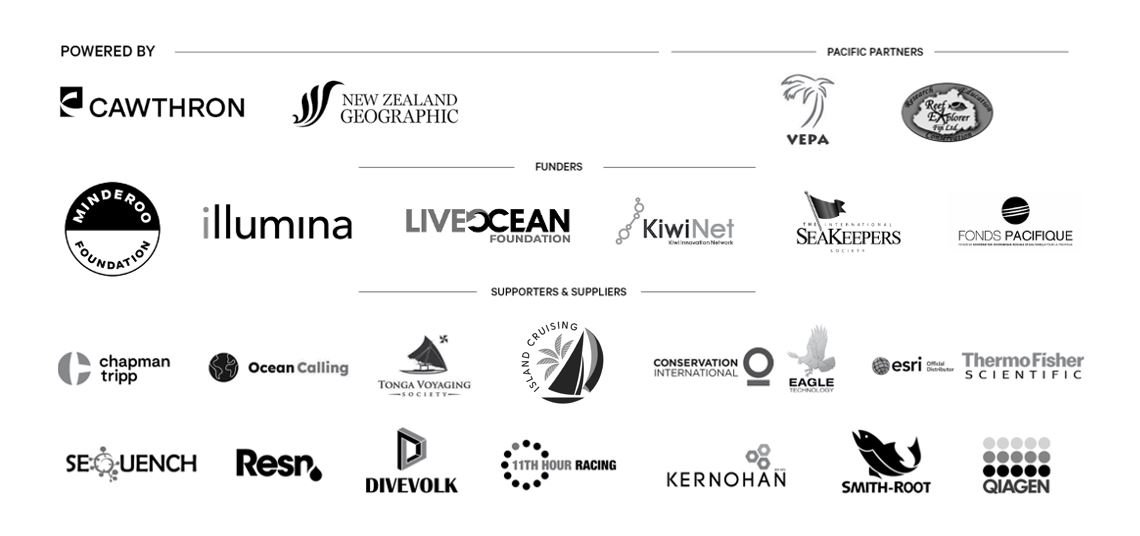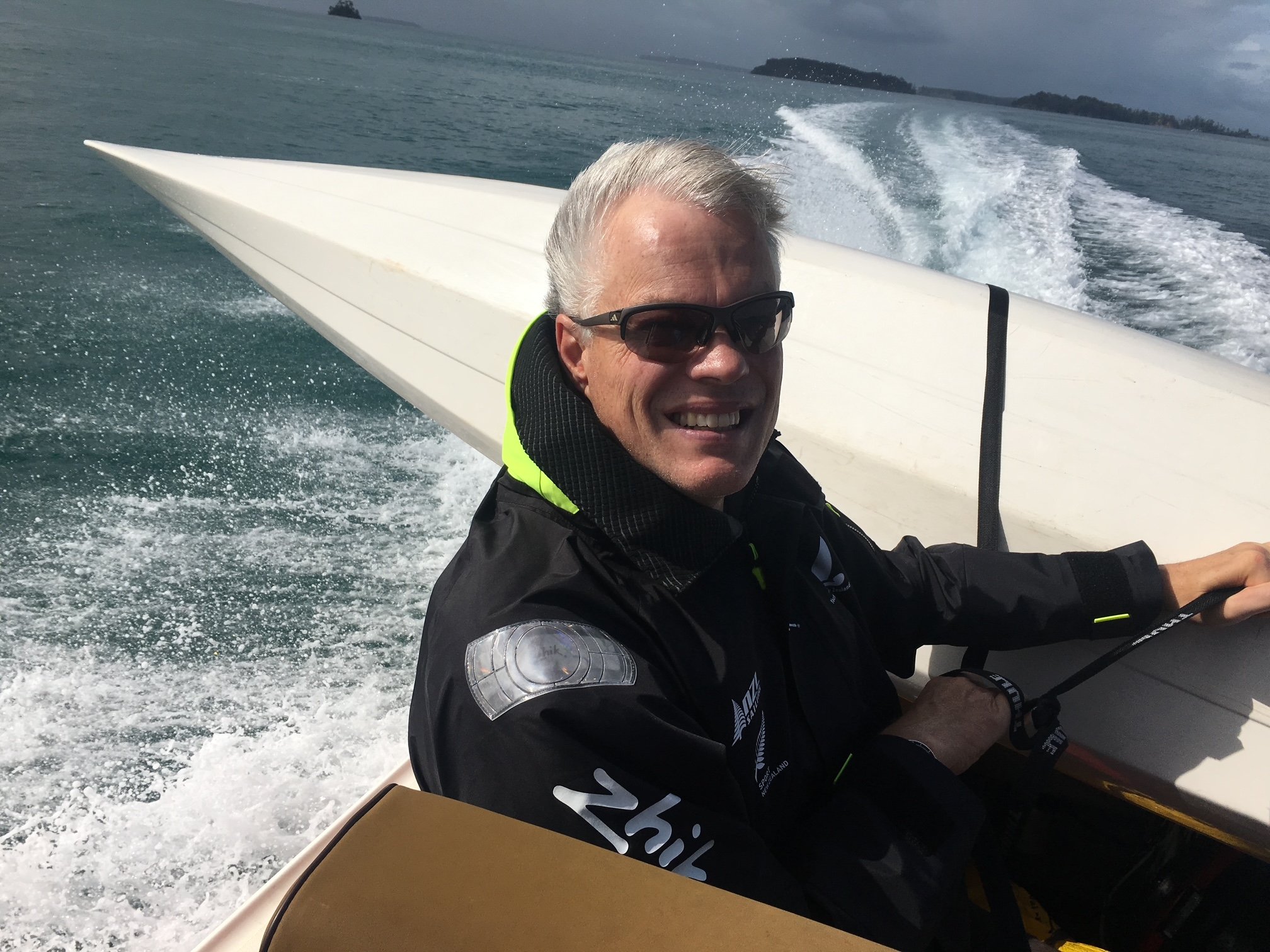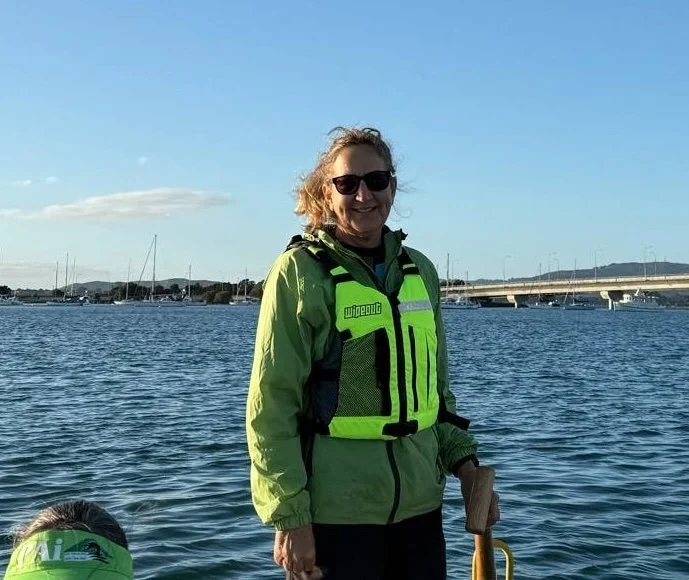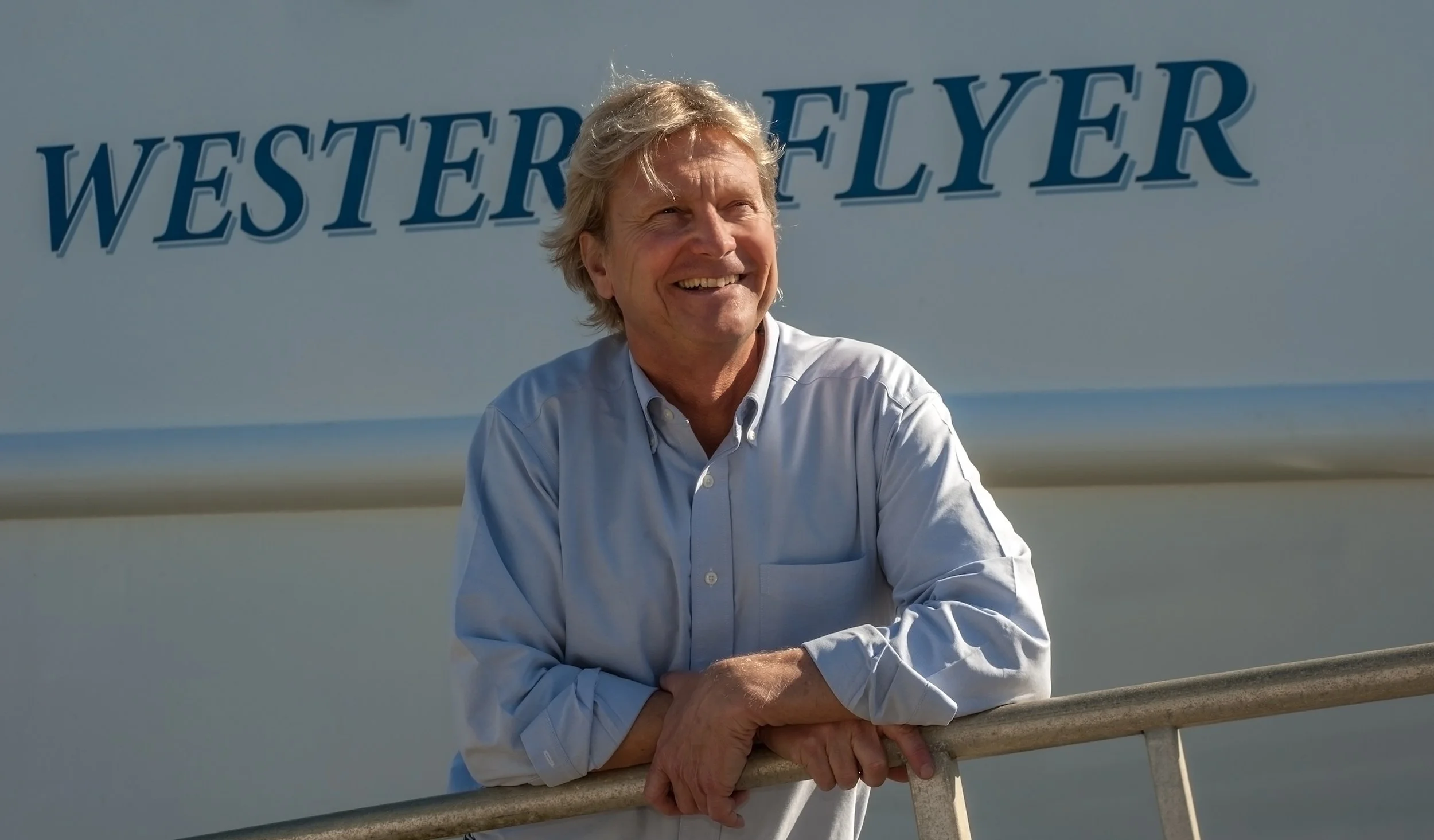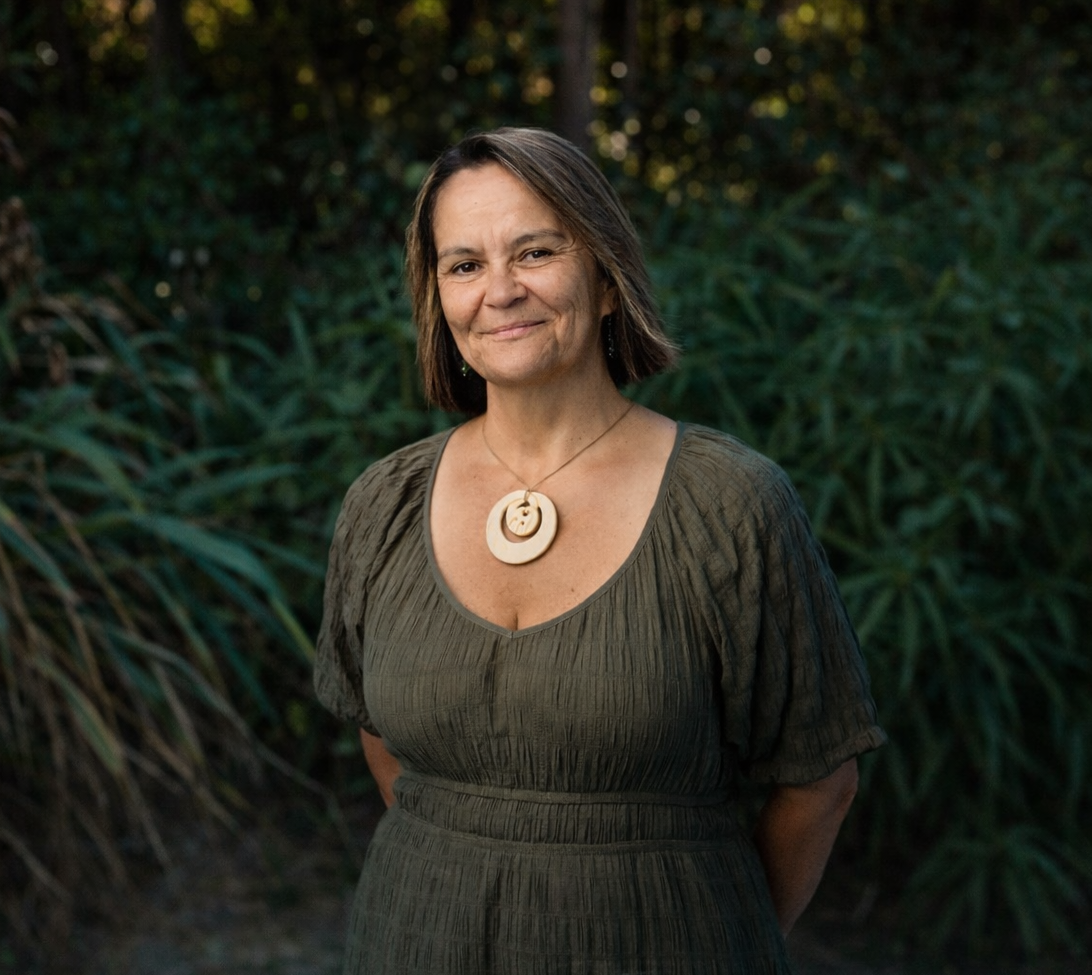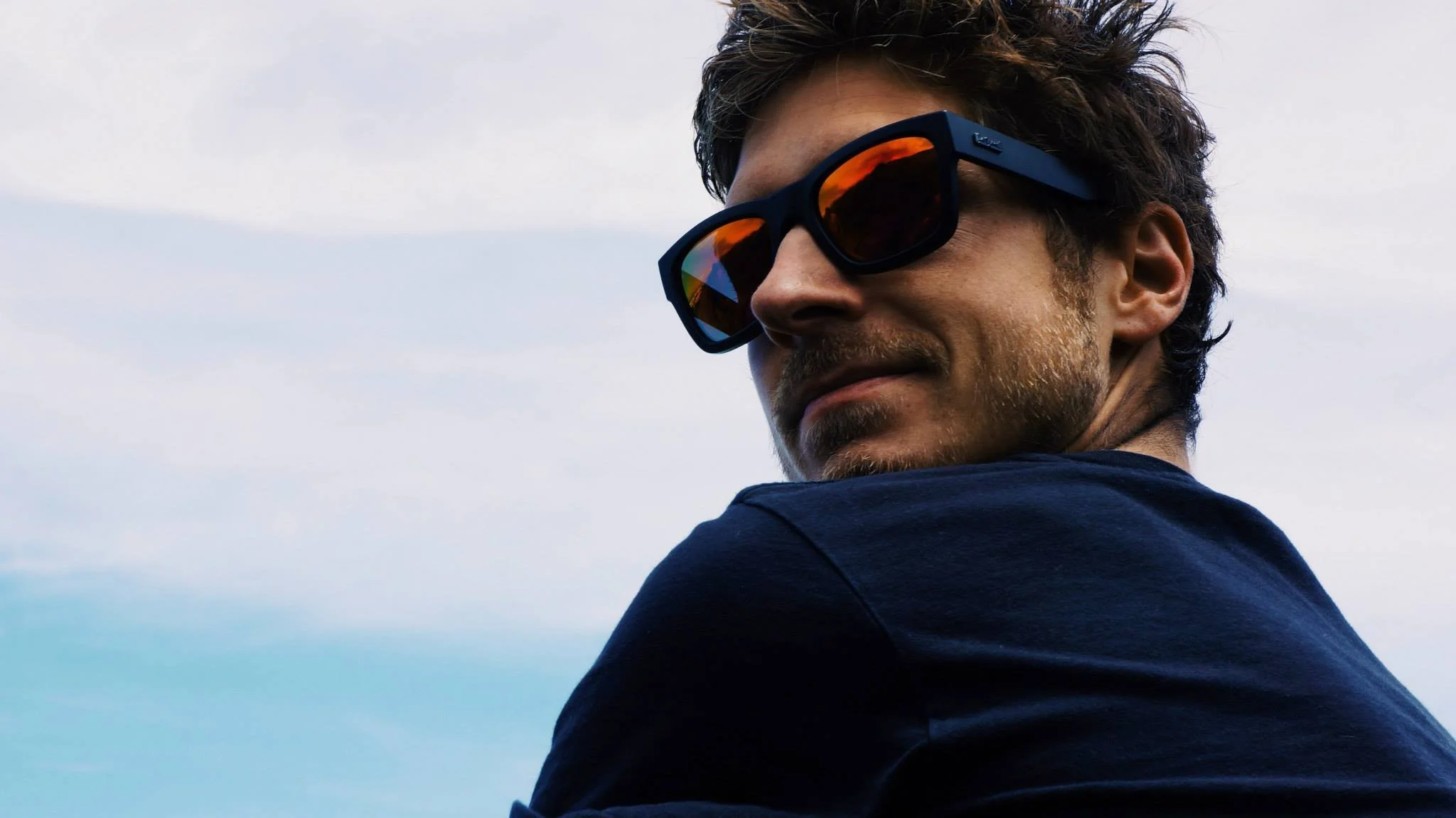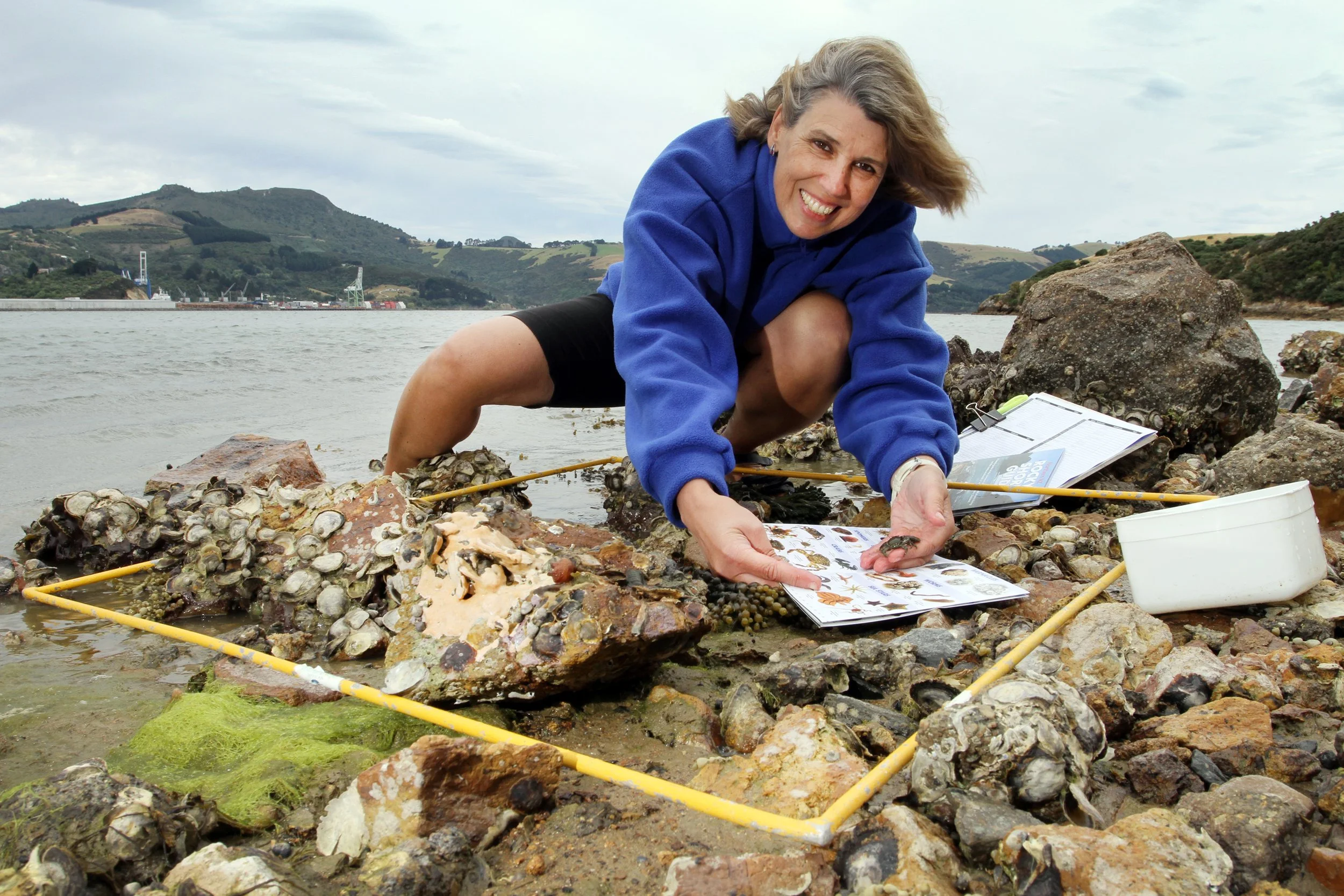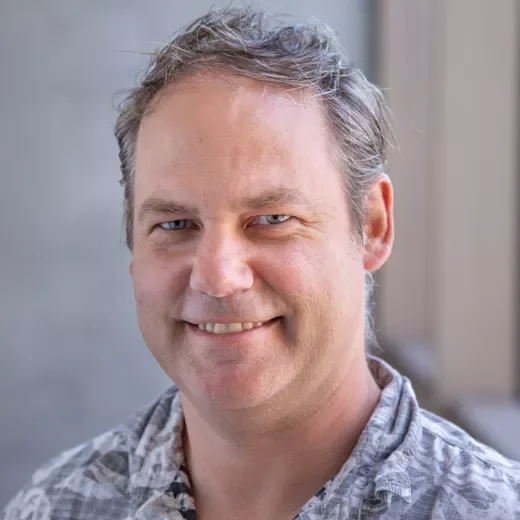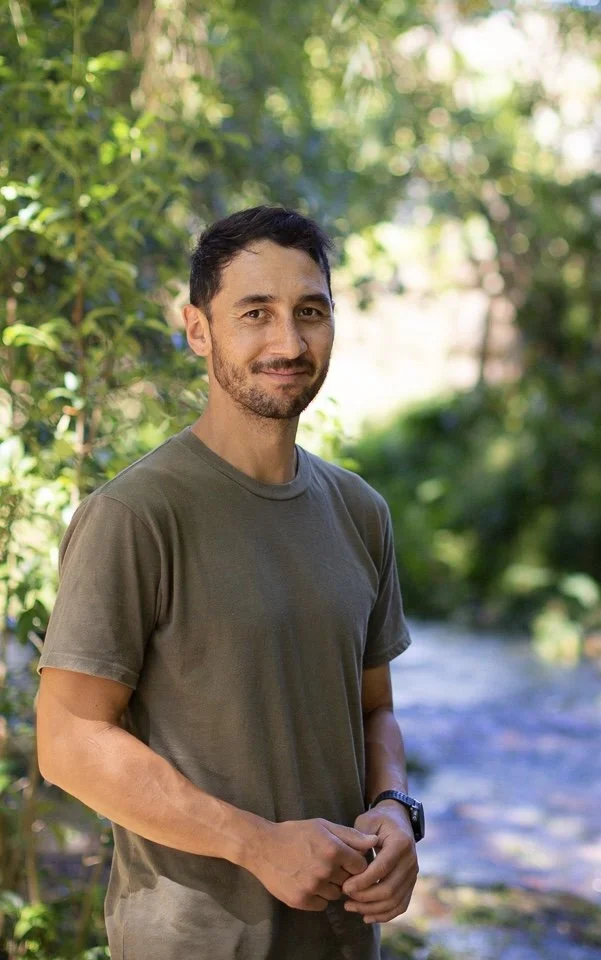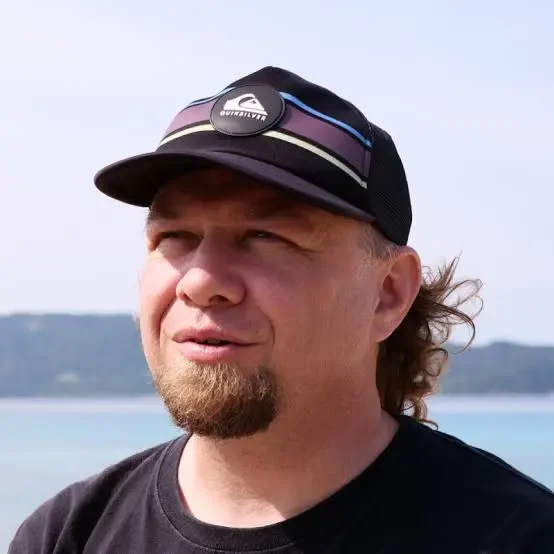About us
Citizens of the Sea began as a partnership between Cawthron Institute and New Zealand Geographic to mobilise and equip seafarers to generate ocean data and support ocean health.
We work with local partners to form connections with communities, agencies and governments to share data and inform ocean health indices, climate predictions and better ocean management.
In 2024 we recruited 26 offshore cruising yachts, a Pacific voyaging vaka, a commercial vessel and a global racing sailor to use innovative new tools to collect eDNA, environmental data and produce photogrammetric reef models as they traverse the oceans.
In 2025 we established an independent charitable trust, brought on an independent Chair and have set out on the Pacific Rally again to build on the largest eDNA dataset of its kind. We have 21 new cruising yachts in the Rally collecting eDNA samples as they sail between Aotearoa New Zealand and around the Pacific Islands.
“If we save the sea, we save our world. Nothing is more important.”
Sir David Attenborough.
eDNA technology is rapidly becoming cost-effective and scalable with Citizens of the Sea equipping seafarers with novel tools and expertise.
We are well-connected within the Aotearoa-Pacific sailing community and are quickly gaining recognition with the professional yacht racing organisations in Europe. These organisations are beginning to make scientific research compulsory on racing yachts and it is our goal to be the scientific project of choice.
We have done the pilot projects with recreational cruisers and global racing competitors, and they have been successful—we have robust science that is of peer-review quality. It is at scale. The equipment and process have been trialled in the largest such venture attempted. It works.
We are ready to scale up and tackle this global issue. We are already a vital part of the solution. With the ocean making up 71% of the planet and 10,000 vessels at sea at any given time, our growth – with the right support – is guaranteed.
Please donate to support our growth.

Meet the Team
-
![Antarctic Penninsula]()
Gillian Wratt - Chair & Trustee
Gillian is an experienced senior executive and director with an extensive background in science and environmental management and policy, including as a previous Chief Executive of Cawthron Institute and Antarctica New Zealand. She is also a certified Environment and Freshwater Commissioner. She has several governance roles in the science and not-for-profit sectors. Having spent time working on tourist vessels in the world’s most pristine ocean environment, the Southern Ocean, Gill is excited by the opportunity Citizens of the Sea creates to contribute to understanding, communicating and protecting ocean biodiversity and health.
-
![Tasman Bay]()
Volker Kuntzsch - Founding Trustee
Originally from Namibia, Volker has spent his career in the seafood industry spanning five continents. He is currently the CEO of the Cawthron Institute in Nelson, New Zealand. His passion for the ocean was borne out of his favourite pastime in his youth, diving for crayfish on Namibia’s coast, and the connection built over time through fishermen and -women in many different countries interacting with him on and off the water. Safeguarding the health of our ocean, the lifeblood of our planet, supports Volker’s purpose of being a good ancestor.
-
Greg Knowles - Trustee
Greg’s professional career was as a Chartered Accountant, being a Partner at KPMG for 23 years, advising on company tax. Before that, he was an Olympic Sailor, for New Zealand, in the Flying Dutchman class at the Seoul and the Barcelona Olympic Games.
Greg spends time with friends and family on the waters of the Hauraki Gulf, the Southern Lakes and Fiordland. He appreciates the need to know more about our maritime environment and how to protect it for our tamariki and mokopuna.
-
![]()
Anne-Maree Schwarz - Trustee
Anne-Maree’s career as a scientific diver and scientist has taken her into the lakes and oceans of Aotearoa- New Zealand and Antarctica and reefs of the Pacific Islands. She has spent a number of years sailing offshore from New Zealand while volunteering and working as a marine scientist based in Solomon Islands. An appreciation for the role and potential of citizen science has grown through her experiences of supporting coastal Pacific Islands communities that are remote from centralised services and are seeking to better understand and manage their marine resources through community-based approaches.
-
![]()
Rufino Varea - Trustee
As Director of the Pacific Islands Climate Action Network (PICAN), Rufino spearheads efforts to empower communities and drive climate action. With a PhD in Marine Science from the University of the South Pacific, he has studied the impacts of marine pollutants on critical seafood systems and the associated risks to human health, particularly for Indigenous and coastal communities. His work bridges science with on-the-ground research advocacy; informing policy, and empowering vulnerable populations. Beyond his research advocacy and science-policy work, he amplifies the voices of Indigenous Peoples in the Pacific and supports movement-building efforts through various partnerships and affiliations.
-
![]()
Chris Scholin - Trustee
Chris Scholin began his professional career at the Monterey Bay Aquarium Research Institute (MBARI) in 1992 after completing a Ph.D. in Biological Oceanography from the Massachusetts Institute of Technology-Woods Hole Oceanographic Institution Joint Program, a master’s degree in Molecular Biology and Immunology from Duke University, and a bachelor’s degree in Biology from University of California, Santa Barbara. He served as the President and CEO of MBARI from 2009-2025 and currently works as a Senior Scientist. His research program focuses on the development of deployable sensors for detecting water-borne microorganisms and environmental DNA (eDNA) using molecular probe technology (see ESP). In 2021, Chris was awarded the Lockheed Martin Award for Ocean Science and Engineering from the Marine Technology Society (MTS). His current interests centre on the use of small fleets of uncrewed systems equipped with a variety of sensing and sampling payloads to observe dynamic ocean ecosystem processes. Chris also serves as co-chair of the MTS eDNA Committee.
-
![]()
Linda Faulkner - Trustee
Linda Faulkner is Pou Whakarae Te Hiringa Taiao - Chief Scientist Māori Environmental Research at Earth Sciences NZ and is also currently Natural Sciences Commissioner of New Zealand’s National Commission for UNESCO. Linda hails primarily from the tribal regions of Ngāti Rangi and Whanganui and has long advocated the opportunities and benefits possible through empowering indigenous knowledge and practice to work alongside contemporary science.
Linda was until June 2024 Deputy Director for New Zealand’s Sustainable Seas National Science Challenge, a 10-year programme focussed on transforming marine management founded upon ecosystem-based management, blue economy approaches and Te Ao Māori. The science challenge established new models and approaches for undertaking co-designed, co-developed and co-delivered multi and transdisciplinary ocean research with policy and decision-makers, communities and industry. Linda has also held senior executive leadership roles within the New Zealand government’s Environmental Protection Authority and Environmental Risk Management Authority. She has also held a range of governance roles including on the Boards of the New Zealand Biological Heritage National Science Challenge, and the New Zealand Māori Heritage Council. Linda is a member of the Advisory Board to the UN Decade of Ocean Science for Sustainable Development, and a number of other research advisory boards and research assessment panels within New Zealand.
-
![Waitangi, Chatham Island]()
Adele Fitzpatrick - Executive Director
Adele is an experienced leader with a track record of growing charities and commercial organisations. She is skilled at marketing, communications, advocacy and fundraising. She is a dive instructor, mountain biker, trail runner and keen adventurer.
Her experiences diving in the Red Sea, Borneo, Mexico, Thailand, Indonesia, California, Fiji and Aotearoa have given her a love of the natural world and a desire to help protect it.
-
![Northland, New Zealand]()
Xavier Pochon – Science Lead
Originally from Switzerland, Xavier is a marine biologist with over 25 years of research experience across the Indo-Pacific. His work bridges coral symbioses, aquatic ecology, biosecurity, and molecular biomonitoring. Since moving to New Zealand in 2012, he has led pioneering research on environmental DNA (eDNA) to assess biodiversity and ocean health. A founding member of Citizens of the Sea, Xavier brings scientific leadership and infectious curiosity to the mission of making ocean data accessible to all.
-
![Northland, New Zealand]()
Erin Bomati - Operations Manager
With a background in enzyme biochemistry and over a decade in the genomics industry, Erin stepped beyond the research to champion citizen science. Driven by a deep passion for ocean conservation, she led an award-winning science outreach program in New Zealand, introducing high school students to the exciting world of marine eDNA. An avid sailor herself, Erin was inspired by the mission to build a global community of sailor-scientists, empowering everyday mariners to make meaningful contributions to the study and protection of ocean health.
Science Advisory Panel
-
Simon Weppe
Simon is a physical oceanographer from Brittany, France, now based in New Zealand. With over 15 years of experience modeling and analyzing both coastal and open-ocean environments, he has a particular interest in ocean frontal systems and their connections to ecosystems. Driven by a deep passion for the ocean, Simon is committed to bridging the worlds of diverse ocean “users” and ocean science. He has served as a scientific advisor for citizen science projects, focusing on collecting ocean and environmental data from offshore racing yachts such as The Ocean Race. He is now supporting Citizens of the Sea in its effort to expand eDNA sampling across a broader fleet of “vessels of opportunity,” helping to unlock new ways for communities to contribute to ocean science.
-
![]()
Sally Carson
Sally Carson is the Director of the New Zealand Marine Studies Centre at the University of Otago, where she leads nationally recognised initiatives in marine science education, citizen science, and community engagement. Sally's work focuses on intertidal ecology, informal science learning, and participatory environmental monitoring. She has been the driver behind number of community education initiatives including the Aquavan and Marine Metre Squared, a national citizen science project on long term monitoring of the NZ seashore. She is currently leading outreach for Coastal People: Southern Skies, a National Centre for Research Excellence focused on connecting, understanding and restoring coastal ecosystems through research, local action and new pathways to learning. She has co-authored many publications and educational resources advancing marine conservation through collaborative science.
-
![]()
Kathryn Mengerink
Dr. Kathryn Mengerink leads a team of ocean experts in developing and implementing blue prosperity programs, including marine spatial planning and blue economy projects. She works in partnership with governments, NGOs, and ocean experts across the globe. Kathryn brings more than 20 years of ocean expertise to her work combining marine science, law and policy to inform decision making.
Previously, she founded and led the Environmental Law Institute’s Ocean Program for ten years. Under her leadership, the Ocean Program launched a number of law and policy projects related to ecosystem-based ocean management, marine spatial planning, fisheries management and enforcement, ocean and coastal restoration, marine protection, deep seabed mining and more. During this time, Kathryn also served as a lecturer at the Scripps Institution of Oceanography and an advisor to its Center for Marine Biodiversity and Conservation.
Kathryn holds a Bachelor of Science in Zoology from Texas A&M University, Ph.D. in Marine Biology from the Scripps Institution of Oceanography and a J.D. with a certificate in Environmental Law from University of California, Berkeley.
-
![]()
Andrew Allen
Andrew E. Allen is a joint professor of microbial oceanography and ecology in both the Integrative Oceanography Division at Scripps Institution of Oceanography, University of California, San Diego, and the J. Craig Venter Institute (JCVI). He received his Ph.D. in ecology from the University of Georgia in 2002. After several years as a postdoctoral scholar at Princeton University and at the École Normale Supérieure in Paris, France, he joined the faculty at JCVI 2007. In 2013 he assumed a faculty position at the Scripps Institution of Oceanography, University of California, San Diego.
-
![]()
Alaric McCarthy
Dr Alaric McCarthy is a social-ecological scientist at the Cawthron Institute with a keen interest in the complex relationships between people and their environment. His work focuses on coastal resources, food systems, and management within the New Zealand and Pacific contexts. He is passionate about advancing the sustainability of these systems, providing tools for improved decision-making, and strengthening social resilience. Alaric adopts social research tools - including participatory action research, community-based research and behavioural studies through surveys and interviews - to help communities, industry and decision-makers plan for change and achieve better social and environmental outcomes. He currently leads interdisciplinary work enabling Pacific communities to transform their food systems through adaptation pathways planning, making them more climate-compatible, self-sustaining and culturally aligned. In New Zealand, his work also includes exploring freshwater values and management strategies, and applying adaptive governance approaches to marine biosecurity.
-
![]()
James Reimer
James Davis Reimer's research focuses on the biodiversity of understudied marine invertebrate groups (so-called "minor taxa"), primarily benthic cnidarians including zoantharians and their endosymbionts, as well as octocorals, from shallow tropical coral reefs to the deep sea. Recent research has also examined the impact of coastal development on marine diversity and ecosystems. Since 2007, he has been based at the University of the Ryukyus, where he is currently an Associate Professor.
In 2015, he was awarded the Okinawa Research Prize for science contributing to the well-being and understanding of the Ryukyu Islands. -
![]()
Marcelle Ayad
Marcelle Ayad is a molecular ecologist specialising in environmental DNA (eDNA) at OceanOmics, Minderoo Foundation in Perth, Western Australia. Her role spans scaling eDNA sample collection through novel instrumentation, building capacity with partners and citizen science programs, and developing molecular methods and workflows to extract more information from eDNA datasets. Marcelle has led and supported major field efforts, including thousands of samples collected along Australia’s south-west coastline and campaigns at the Indian Ocean Territories, contributing significantly to a collaboration with Parks Australia that aims to integrate eDNA data into marine park monitoring and conservation.
